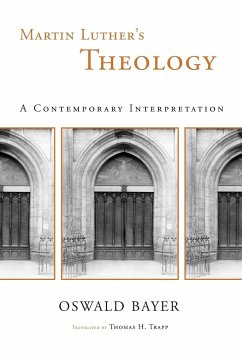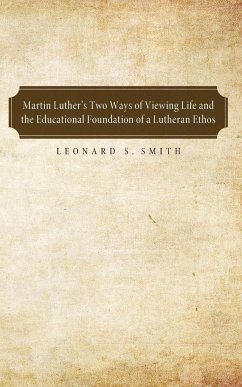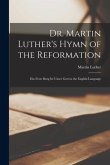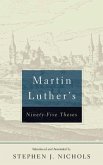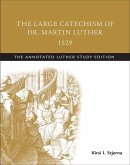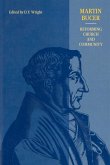Forty years of in-depth research on Martin Luther's theology has left Oswald Bayer uniquely qualified to present this comprehensive study. He does so with clarity and care, simply enough for nontheologians to access. This remarkable book offers the basics of Luther's understanding of theology, discussing his response to the philosophy of science tradition, the formula by which he studied theology, and the basic philosophy that informed him. Bayer then takes Luther's stance on Christian dogmatics and ethics and applies it to our own theological understanding in the modern age. With such a complete Lutheran dogmatic concept -- the first of its kind offered -- the stunning inner consistency of Luther's theology and its ease of application to contemporary studies become unmistakably clear. Martin Luther's Theology is a valuable tool for students and teachers of theology and for those looking for a guide into the mind and heart of Luther -- a theologian for today.
Hinweis: Dieser Artikel kann nur an eine deutsche Lieferadresse ausgeliefert werden.
Hinweis: Dieser Artikel kann nur an eine deutsche Lieferadresse ausgeliefert werden.

